The Genron NPO conducted a four-day survey from Sept. 15 to 18 of 195 Japanese intellectuals* to find out their perception of the United States and its position in Asia.
<Survey Method>
The Genron NPO sent the questionnaire to 6000 experts and intellectuals who have previously participated in the discussions and surveys by The Genron NPO via email. Survey was conducted from September 15, 2015 to 18. The total number of responses obtained was 195.
Demographic information
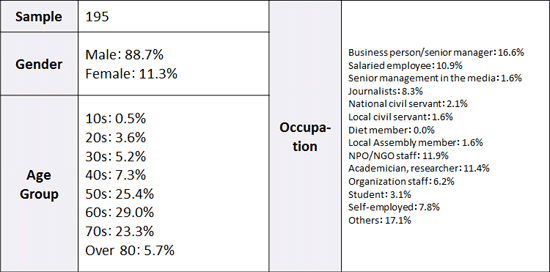
※percentages may not add up to 100% due to rounding
When asked if they trusted Americans, 75.3 percent of those interviewed said they did while only 8.3 percent said they didn't, demonstrating the overall high level of trust Japanese intellectuals have in Americans.
Q1.Do you trust Americans?
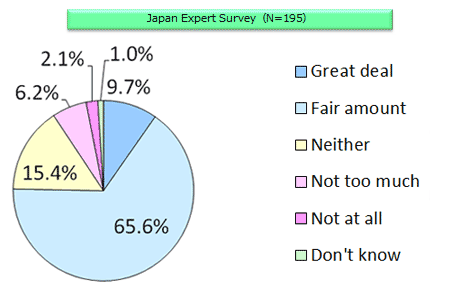
Turning to the characteristics of Americans, the respondents thought they were "creative" (86.7%), "reliable" (68.8%), "honest" (65.6%) and "diligent" (49.8%). However, they had a negative image of Americans as being "individualistic" (69.2%), "selfish" (59.0%) and "belligerent" (49.2%).
In terms of the U.S. as a nation, the respondents thought the country was "multicultural, multiracial" (55.4%), a "military superpower" (49.7%), as well as being a country of "freedom" (29.7%), "economic prowess" (26.2%) and "racial discrimination" (27.2%). In terms of issues related to Japan, the "Japan-U.S. Security Treaty" ranked highest with 17.4 percent, followed by the "atomic bombing of Hiroshima and Nagasaki" (10.3%), "U.S. military bases in Japan" (6.2%) and the "Pacific War" (3%).
Q3.What comes to mind when you think of the "United States"? (Please select up to three)
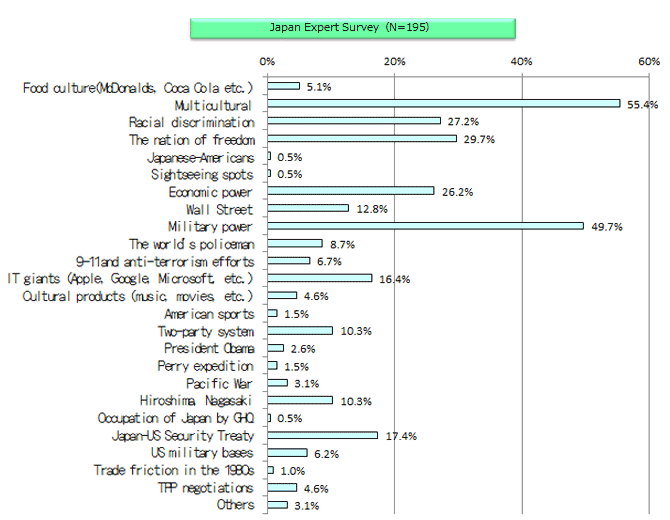
As a trading partner, 37.9 percent of the respondents considered the U.S. to be unfair, overwhelming those who considered it as being fair (17.4%). Another 42.6 percent responded that they couldn't say either, suggesting the general low trust the Japanese intellectuals have toward the U.S. in that aspect.
Q4.Do you think the United States has a fair trade policy or an unfair trade policy with Japan?
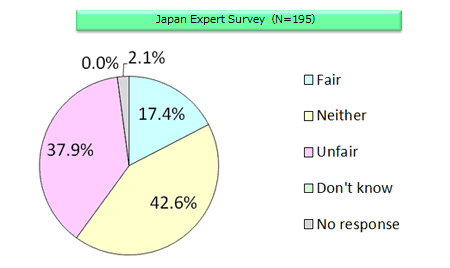
In tandem with the military and economic buildup of China, 57.9 percent of the Japanese intellectuals thought the Japan-U.S. relationship will become more important in the future. Adding these figures to those who thought the Japan-U.S. relationship will remain unchanged (26.2%), over 80 percent of all respondents expected that the level of importance of the Japan-U.S. relationship will remain somewhat the same as it is today.
Q5.The rise of China as a military and economic power makes relations between the United States and Japan ...
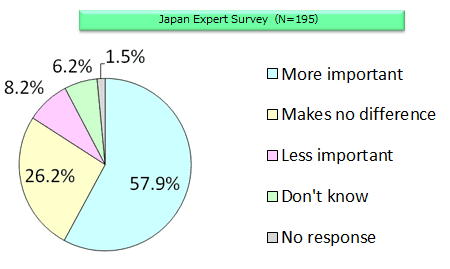
When comparing the economic importance of China and the U.S., the first and second leading trading partners for Japan, 54.9 percent of all respondents thought both countries were of equal importance. However, a noticeable 39.0 percent considered the U.S. to be more important, outnumbering by far those who thought China was more important (4.1%).
Q6.It is more important for Japan to have strong economic ties with...
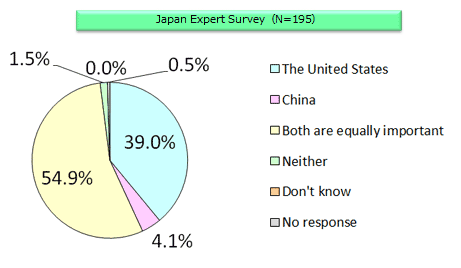
Turning to the military role of Japan in the Northeast Asian region, 55.9 percent of the respondents thought Japan should "suppress its military role," starkly contrasting with those who thought Japan should "play a more active military role" (24.6%) in that region.
Q7.Japan should ___ in helping to maintain peace and stability in regional affairs
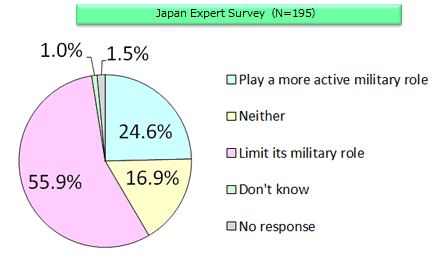
When asked whether the U.S. should intervene militarily in case of a clash between Japan and China, 46.7 percent thought it should, "depending on the situation," followed by another 36.4 percent who were clearly in favor of U.S. military intervention under such conditions. In contrast, a mere 13.8 percent considered that no military force should be welcomed.
Q8.If Japan got into a serious military conflict with China, what do you think the United States should do?
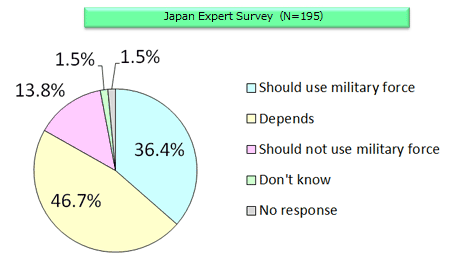
As to the recent "Asia rebalance" by the U.S., which is concentrating its military resources more in the Asian region, 55.9 percent of the respondents welcomed the move.
Q9.The United States announced plans to commit more military resources to Asia. How do you see the U.S. Asia rebalance? Is this favorable or unfavorable?
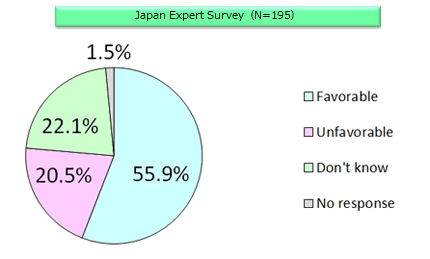
When asked about the information source the intellectuals relied upon, 83.6 percent of the total said they turned to "domestic news media," although they also did "refer to overseas news media, including those in the U.S." (54.4%).
Q10. What are your sources of information on the United States and Japan-U.S. relations? (please select up to three)
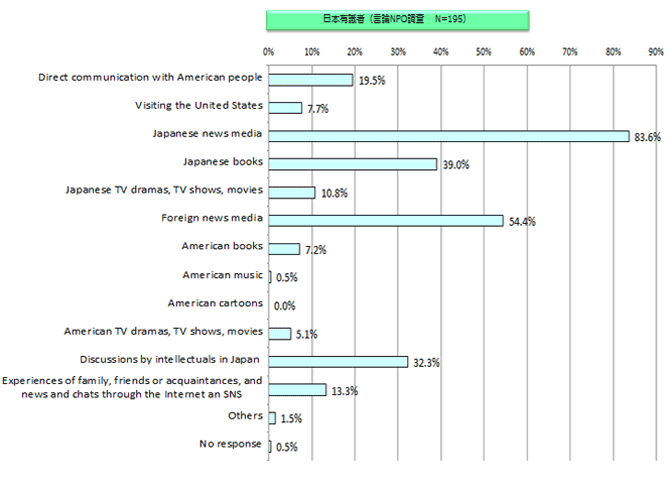
Post a comment